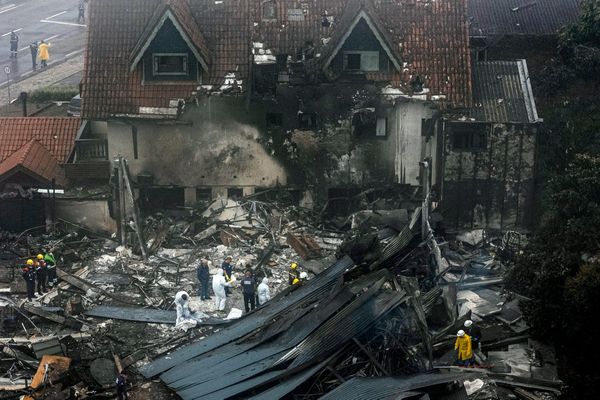
This article is an instalment in a new series, Where to for real Liberals?, on the future of the Liberal Party under Peter Dutton.
In the late 1990s, Tony Abbott was a junior minister often described as “John Howard’s attack dog”. It was a time of electoral ascendency for the centre right in Australia.
Yet conservatives and liberals alike — the oil-and-water denominations of Howard’s “broad church” Liberal Party — were worried most about a new populist phenomenon on their right flank: Pauline Hanson’s One Nation.
Hanson, a delisted Liberal, had broken through in the once-strong Queensland Labor seat of Oxley in the 1996 federal election. Now she was impressing blue-collar voters across the Sunshine State and beyond with anti-establishment messaging against political correctness, immigration, Aboriginal land rights and more.
Abbott even formed a secret trust, “Australians for Honest Politics”, to disburse funds for a legal challenge to the fledgling One Nation, claiming it had been fraudulently registered and was thus ineligible for the public monies it received. Hanson and a colleague went to jail, although the pair were released after their convictions were overturned on appeal.
“I met with numerous One Nation dissidents back in 1998 because I was very keen to bring about an end to what I thought was the counterproductive and destabilising influence of One Nation,” Abbott admitted frankly in 2003.
Two decades later, the Liberal Party’s broad church is that in name only, as a succession of leaders, not least Abbott himself, shifted the party to the right and so-called moderates became a hunted species. As a hyper-aggressive prime minister, Abbott would smash progress on climate, continue to champion school chaplains, back religious discrimination exemptions, and scheme assiduously against social reforms like marriage equality.
The 47th Parliament is a reflection of this profound character change, with independent “teal” MPs ensconced in once blue-ribbon inner-city Liberal heartland seats, another progressive independent nabbing what had been the Liberals’ Senate seat in the ACT, and the prospect of worse to come.
The longer-term historic significance of the 2022 repudiation of the Morrison government, which saw the teals elected alongside a Labor majority, has arguably been under-appreciated. Moreover, the most declaratively conservative leader in the party’s history, Peter Dutton, has made no steps towards the political centre ground.
Rather, he has opted for “Hansonisation”, valorising his party’s reorientation away from the wealthy elites in the inner cities towards Labor’s traditional blue-collar base in the suburbs and regions. When asked at his first press conference as leader of the opposition about what he would do to regain the lost Liberal heartland, Dutton conspicuously offered no paean to the two wings of the party, nor any validation of the disaffection felt by traditional Liberal voters in affluent metropolitan electorates.
That meant no concession to the clamour for faster emissions reduction, nor the multiple dimensions of discrimination against women in the Liberal Party, Parliament, the workplace and the home.
Moderates in the contemporary Liberal Party are mere passengers in a new hardline politics influenced by the divisive right-wing populism Abbott once worried would destroy the party. Its touchstones are international phenomena like Brexit and Donald Trump, and its social licence is renewed nightly by hyper-partisan subscription TV.
With the honourable exceptions of Bridget Archer (Tasmania), Julian Leeser (NSW) and Senator Andrew Bragg (NSW) — all of whom swam against an aggressive tide of anti-Voice invective in 2022-23 — moderates are unseen.
Dutton shows no sign of changing course, having doubled down in recent weeks against Labor’s renewable energy transition with his high-impact, high-risk embrace of nuclear energy.
The most significant element of the new configuration is the shift in power and sensibility of the once Melbourne/Sydney-based Liberal Party to Queensland — a state where the Nationals and Liberals are merged, where both its leaders are based, and where blue-collar populism seems most at home.
Could Dutton have electoral success dragging the Liberal Party to the right? Let us know your thoughts by writing to letters@crikey.com.au. Please include your full name to be considered for publication. We reserve the right to edit for length and clarity.







